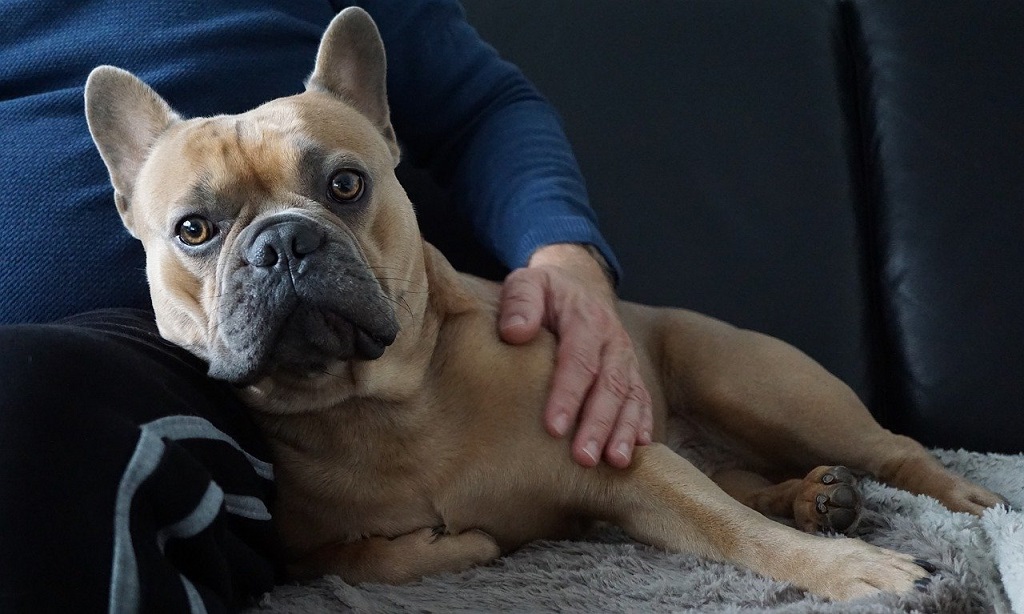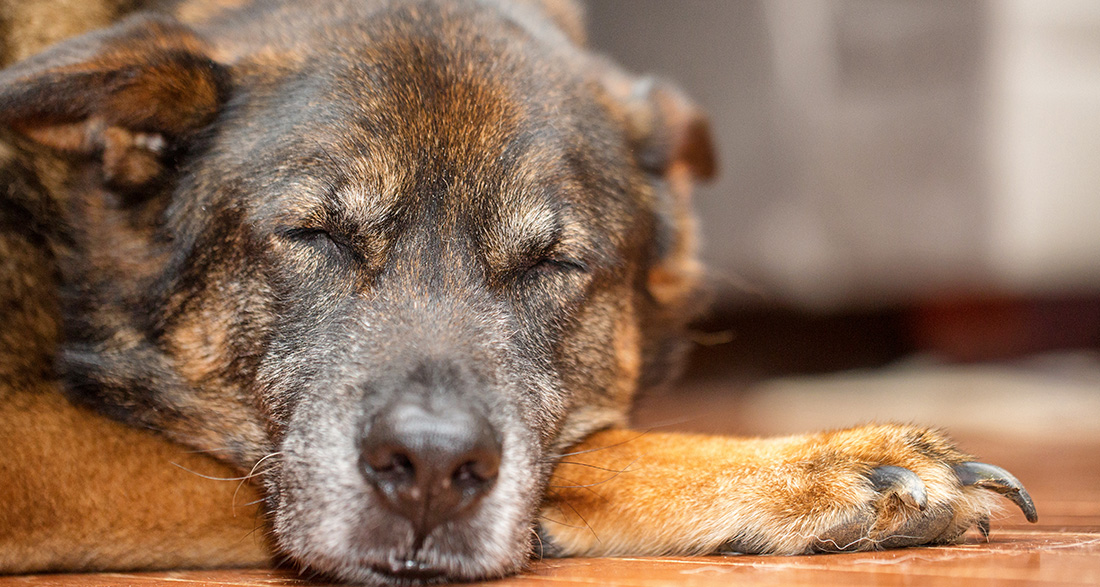Before adopting a senior dog, there are a few things you should be clear about, as older four-legged companions have different needs than younger ones. Here, you’ll learn what matters.
There are many good reasons to consider adopting a dog. When bringing a senior dog into your home, you generally don’t have to expect any unpleasant surprises. Unlike with a puppy, you won’t need to invest much effort into training, as the dog’s character is likely already well-established, and basic commands are mastered. Additionally, older dogs probably don’t have as fiery a temperament and tend to act more calmly in loud and stressful situations. For families with young children, adopting an older dog can be particularly interesting.
If you’re thinking about adopting an old dog, here are a few things to consider.
Does Your Lifestyle Suit a Senior Dog?
Before adopting a senior dog, assess whether your daily life and preferences align with the following:
- Some people have busy work schedules or hectic family lives. If your lifestyle leaves little room for leisure time, consider whether an older dog would find a good home with you before adoption. The care required for an older canine can be substantial, especially if they have pre-existing conditions or suddenly fall ill. Be aware that the condition of a senior dog, similar to humans, can deteriorate at any time.
- Accordingly, you should establish a financial cushion and be ready to provide necessary veterinary care if needed. Additional financial resources may be required for essential supplements or medications for your four-legged friend.
- If you also enjoy being active with your dog or look forward to long walks, be aware that an old dog may no longer be able to participate in such activities.
If any of these points are not suitable for you, it might be better not to adopt an old dog.
Adopting a Senior Dog: What is the Average Lifespan for the Respective Breed?

Dogs have different life expectancies, with larger breeds generally not living as long as smaller ones. While a Dachshund may live to be 15 to 20 years old, German Shepherds usually reach an age of ten to eleven years. Therefore, before adoption, you should clarify the dog’s age and whether it may suffer from any health issues. In any case, you should be clear about your willingness to care for and support the dog until the end of its life.
Learn about the Needs of Senior Dogs
Handling senior dogs is different from dealing with puppies or young dogs in some aspects:
- Generally, older dogs, depending on their physical condition, do not require as much exercise. They appreciate shorter walks and leisurely strolls. Older dogs also value moments of relaxation. Therefore, you don’t need to offer them a full program every day. Consider whether it should be jogging with the dog or if you are content with shorter walks, accepting that your older canine friend may prefer to rest rather than frolic. Depending on the dog’s condition, it may take fifteen minutes for a lap around the house.
- Senior dogs need extended periods of rest. Some elderly dogs may not want constant visitors in their old age and may spend little time with other dogs or people. Be prepared for this if necessary.
- In old age, dogs, like humans, may sometimes drink too little. Therefore, ensure that your furry friend gets sufficient water. If needed, you can offer wet food to provide additional moisture.
- Consider specific aspects in their diet. Older dogs appreciate smaller, scattered portions throughout the day and do not need as many calories as puppies or young dogs. Balanced food that relieves the kidneys and liver, preventing constipation, is crucial. Since older dogs are prone to dental issues, avoid chewy snacks and offer specialized dry food for senior dogs that stimulate saliva flow.
Extended Adoption Process for Older Dogs

If you are sure about adopting an older dog despite the mentioned points, contact your nearest animal shelter. Most shelters present adoptable animals in a small profile with pictures on their website, giving you a first impression.
Depending on the adoption partner, the process of adopting an older dog can be lengthy. Organizations like the “American Kennel Club” prepare the adoption process in multiple stages. Initially, be prepared for a longer phone call, during which you learn more about the dog’s breed and individual needs. The adoption process may take longer because older dogs often have health restrictions or negative experiences with previous owners. Therefore, adoption agencies want to ensure that the dog goes to good hands, and future owners are well-informed about what to look out for in the older dog.
Afterward, you will likely have to fill out a questionnaire about your living conditions. Your personal motivation is also important since the dog is meant to be placed in caring hands.
Post-Adoption: Live and Learn with Your Older Dog

Just because a dog is older and requires less exercise does not mean it can’t do anything anymore. On the contrary, experienced and elderly dogs love to learn new tricks and things. You should certainly facilitate this for your four-legged friend and satisfy their curiosity with activities like dog sports or mental tricks. Sports suitable for senior dogs include Hoopers Agility or Mobility.
Over time, you will discover the daily routines, the right amount of exercise, relaxation, and food your senior dog needs.


